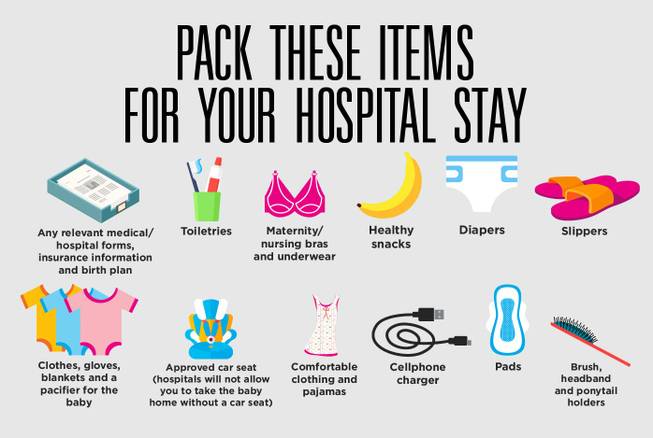
Sunday, May 8, 2016 | 2 a.m.
Pregnancy is a beautiful and special time in a mother’s life, but it also demands a lot of important considerations — including some crucial ones about labor and delivery. “Labor and delivery can be stressful. Being as prepared as you can be will help minimize that stress,” said Dr. Paul Chao, OB/GYN at Sunrise Children’s Hospital.
Whether it’s choosing your delivery room, creating your birth plan or packing your hospital bag, here is a guide to help you prepare for what’s ahead.
Choosing a delivery room
When choosing a delivery room, first and foremost you should find a hospital where you feel comfortable, respected and confident with the quality of care provided. From there, make sure your insurance covers your hospital of choice and that your doctor is able to deliver there. “This sounds silly, but it happens a lot. Doctors do not go to all the hospitals in the valley,” Chao said.
Furthermore, your doctor may have a hospital preference that you may want to consider. It’s also good to find a hospital that has an in-house obstetrician-gynecologist who will be able to provide a higher level of care in the event that your doctor is unable to make it to your delivery.
Chao recommends choosing a hospital that has a neonatal intensive care unit, in case something were to go wrong and especially if you have a high-risk pregnancy. “It will be unnerving if your baby has to be transferred to a different hospital from the one you’re at,” Chao said.
Once you’ve decided, or have narrowed down, where you want to deliver, tour the facility well in advance of your due date. “You should go in and see the unit at least once so you won’t be surprised during labor. Being familiar with the place of delivery will be one less thing to worry about,” Chao said. This is especially important if it’s your first pregnancy, as you will likely be unfamiliar with how a delivery unit works and what to expect once you arrive.
Pack your hospital bag
You’ll want to have your hospital bag packed and ready by 28 weeks into your pregnancy and keep it somewhere easily accessible, like near the front door or in the trunk of your car.
When deciding what to pack, it’s helpful to imagine that you’re going out of town for two or three days with a newborn and to plan accordingly. Choose items that will make you comfortable, but don’t bring any clothes that you don’t want to get stained or damaged.
• Any relevant medical/hospital forms, insurance information and birth plan
• Maternity/nursing bras and underwear
• Toiletries
• Diapers
• Healthy snacks
• Clothes, gloves, blankets and a pacifier for the baby
• Brush, headband and ponytail holders
• Approved car seat (hospitals will not allow you to take the baby home without a car seat)
• Slippers
• Comfortable clothing and pajamas
• Pads
• Cellphone charger
Creating your birth plan
A birth plan is a simple document that lists your preferences during your delivery and should be finalized as far in advance as possible, preferably before your 32nd week of pregnancy.
It’s important to work with your doctor when creating your birth plan to ensure that all your requests and preferences are reasonable. “A patient may come in with a birth plan that reflects the trends at the time but could conflict with what’s best for the mother and the baby. Your doctor will be able to help accomplish your birthing goals while telling you what is feasible and what isn’t,” Chao said.
Other issues to consider
Be thoughtful when choosing the people who are going to be in the delivery room with you. “Remember that the people in the room are there to help you, not just sit there and watch. They should make you comfortable and be able to coach you and support you,” Chao said. Make sure you know how many people are allowed in the delivery room with you, too — different hospitals will have different policies.
Know who will be driving you to the hospital when you go into labor and have a couple backup options, as well. They should have directions to the hospital ready and be able to drive you at anytime during the final weeks of your pregnancy. If you have other young children, make sure you have a relative or baby sitter you can call to take care of them. “The hospital is not a great place to take a young toddler,” Chao said.
Prepare for the process both physically and mentally. Labor is long, emotional and physically demanding — most labors take between six and 36 hours and often do not go exactly as planned. Being as prepared as you can be can help minimize stress, but also be ready for plans to change if they need to.

Join the Discussion:
Check this out for a full explanation of our conversion to the LiveFyre commenting system and instructions on how to sign up for an account.
Full comments policy